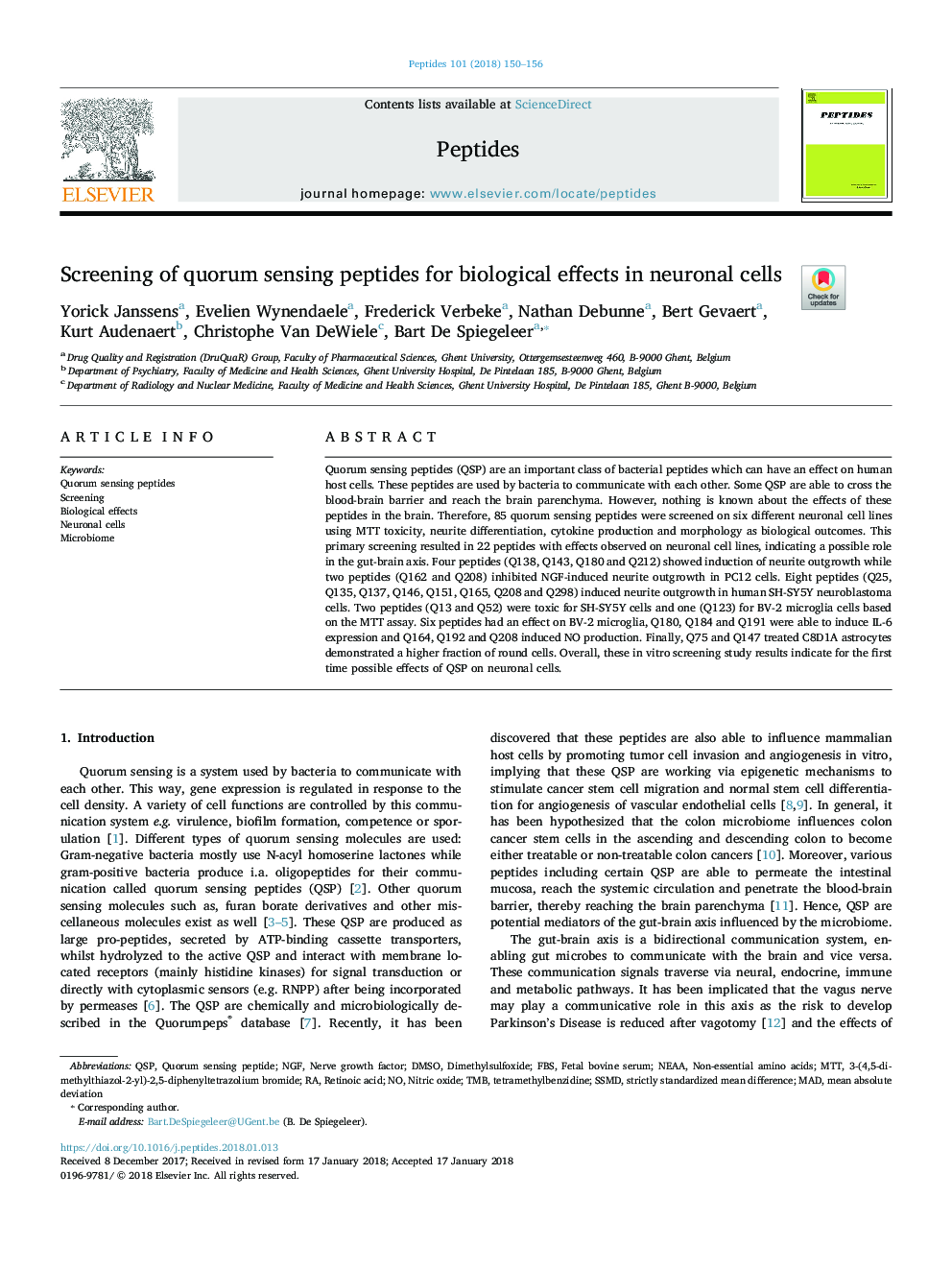| Article ID | Journal | Published Year | Pages | File Type |
|---|---|---|---|---|
| 8347388 | Peptides | 2018 | 7 Pages |
Abstract
Quorum sensing peptides (QSP) are an important class of bacterial peptides which can have an effect on human host cells. These peptides are used by bacteria to communicate with each other. Some QSP are able to cross the blood-brain barrier and reach the brain parenchyma. However, nothing is known about the effects of these peptides in the brain. Therefore, 85 quorum sensing peptides were screened on six different neuronal cell lines using MTT toxicity, neurite differentiation, cytokine production and morphology as biological outcomes. This primary screening resulted in 22 peptides with effects observed on neuronal cell lines, indicating a possible role in the gut-brain axis. Four peptides (Q138, Q143, Q180 and Q212) showed induction of neurite outgrowth while two peptides (Q162 and Q208) inhibited NGF-induced neurite outgrowth in PC12 cells. Eight peptides (Q25, Q135, Q137, Q146, Q151, Q165, Q208 and Q298) induced neurite outgrowth in human SH-SY5Y neuroblastoma cells. Two peptides (Q13 and Q52) were toxic for SH-SY5Y cells and one (Q123) for BV-2 microglia cells based on the MTT assay. Six peptides had an effect on BV-2 microglia, Q180, Q184 and Q191 were able to induce IL-6 expression and Q164, Q192 and Q208 induced NO production. Finally, Q75 and Q147 treated C8D1A astrocytes demonstrated a higher fraction of round cells. Overall, these in vitro screening study results indicate for the first time possible effects of QSP on neuronal cells.
Keywords
Related Topics
Life Sciences
Biochemistry, Genetics and Molecular Biology
Biochemistry
Authors
Yorick Janssens, Evelien Wynendaele, Frederick Verbeke, Nathan Debunne, Bert Gevaert, Kurt Audenaert, Christophe Van DeWiele, Bart De Spiegeleer,
